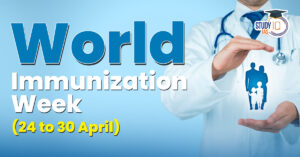Table of Contents
World Malaria Day 2025 is a global reminder of the ongoing fight against one of the most dangerous yet preventable diseases affecting millions around the world. Marked annually on April 25, the day highlights progress, acknowledges challenges, and promotes renewed efforts to eliminate malaria.
According to the World Health Organization (WHO), there were 263 million malaria cases and nearly 597,000 deaths reported in 83 countries in 2023 alone. These staggering statistics underline the urgency of malaria prevention and treatment strategies, especially in tropical and low-income regions.
World Malaria Day 2025
World Malaria Day 2025 is being celebrated on 25 April 2025 worldwide. This Day commemorates the fight against a disease transmitted by mosquitoes. Its symptoms include shaking, chills, and high fever. Prevalent in tropical regions, Malaria is preventable with adequate precautions. The day serves to educate and promote preventive measures. Vital reminders include avoiding mosquito bites and supporting initiatives to combat the disease. Let’s unite to raise awareness and ensure a malaria-free future.
| World Malaria Day 2025- Highlights | |
| Date | April 25th, annually |
| History |
|
| Significance |
|
| Activities |
|
World Malaria Day 2025 Theme
The theme for World Malaria Day 2025 is:
“Malaria Ends With Us: Reinvest, Reimagine, Reignite”
This year’s theme is a grassroots campaign encouraging:
-
Reinvestment in health infrastructure and malaria control programs.
-
Reimagining solutions through innovation and scientific research.
-
Reigniting commitment at all levels – from global leaders to community health workers.
The WHO aims to unite global health stakeholders under this powerful message to accelerate the path toward zero malaria.
World Malaria Day History
Since 2001, African Governments have been celebrating Africa Malaria Day. In 2008, Africa Malaria Day was changed to World Malaria Day at the 60th session of the World Health Assembly, sponsored by the World Health Organisation.
| Year | Event |
|---|---|
| 2001 | African governments established Africa Malaria Day to raise awareness about malaria in Africa. |
| 2008 | The World Health Assembly designates April 25th as World Malaria Day. |
| Present | World Malaria Day is observed annually, serving as a global platform for malaria advocacy. |
World Malaria Day 2025 Activities
- Awareness Campaigns: Organize campaigns to educate communities about malaria prevention, symptoms, and treatment.
- Community Outreach: Conduct outreach programs to distribute insecticide-treated bed nets, mosquito repellents, and other preventive tools.
- Health Education Workshops: Host workshops to train healthcare professionals and community health workers on malaria diagnosis and treatment.
- Policy Advocacy: Advocate for policies and funding to support malaria control programs and research initiatives.
- Research Symposia: Organize symposiums to share latest research findings, innovations, and best practices in malaria prevention and treatment.
World Malaria Day 2025 Significance
Malaria is caused by Plasmodium parasites, transmitted to humans through the bites of infected female Anopheles mosquitoes. Though it is preventable and curable, it continues to impact millions, especially in sub-Saharan Africa and parts of Asia and Latin America.
The significance of World Malaria Day includes:
-
Promoting scientific research and innovation in malaria vaccines, treatments, and vector control.
-
Educating people globally about preventive measures such as mosquito nets, indoor spraying, and antimalarial medication.
-
Mobilizing resources and partnerships among governments, NGOs, research institutions, and global health bodies.
-
Honoring healthcare workers and community leaders who tirelessly work on the frontlines to prevent and treat malaria.
Facts on Malaria Disease 2025
According to the latest World Malaria Report, there were 249 million cases of malaria in 2022 compared to 244 million cases in 2021. The estimated number of malaria deaths stood at 608,000 in 2022 compared to 610,000 in 2021.
| Fact | Description |
|---|---|
| Cause | Parasitic infection transmitted through the bite of infected female Anopheles mosquitoes |
| Parasite | Plasmodium species (P. falciparum, P. vivax, P. malariae, P. ovale) |
| Symptoms | Fever, chills, headache, muscle aches, fatigue, nausea, vomiting, and in severe cases, organ failure |
| High-risk Areas | Tropical and subtropical regions, especially sub-Saharan Africa |
| Preventive Measures | Mosquito nets, insect repellents, antimalarial medication (prophylaxis), indoor residual spraying |
| Diagnosis | Blood tests (rapid diagnostic tests, microscopy) |
| Treatment | Artemisinin-based combination therapies (ACTs), quinine, other antimalarial drugs |
| Drug Resistance | Growing resistance to antimalarial drugs, particularly in Southeast Asia |
| Impact | Major public health concern, particularly in developing countries; significant economic burden |
| Global Efforts | Roll Back Malaria Partnership, Global Fund to Fight AIDS, Tuberculosis and Malaria |


 World Intellectual Property Day 2025, Th...
World Intellectual Property Day 2025, Th...
 World Immunization Week (24 to 30 April)...
World Immunization Week (24 to 30 April)...
 National Panchayati Raj Day (24th April)...
National Panchayati Raj Day (24th April)...






















